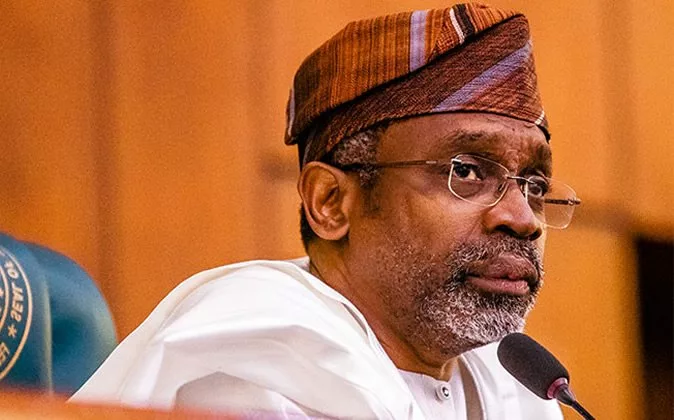The Speaker of the House of Representatives, Rep. Femi Gbajabiamila, has once again demonstrated how dearly he is committed to nation building, through the just-concluded National Summit on Tertiary Education Reform.
Initiated by his office and with the support of members of the House, the two-day summit, which ran from Tuesday, November 22 to Wednesday, November 23, was a legislative response to the apparent decay in the country’s education sector, but especially, the tertiary sub-system where everything from frequent strikes by tertiary institution workers, poor funding, collapsing infrastructure, brain drain, lack of capacity, systemic corruption, sexual harassment to low quality of the students churned out, have become the norm rather than the absurd.
The broad theme of the summit was ‘Re-imagining Tertiary Education in Nigeria: Issues, Challenges and Solutions.’
It followed the termination of one of the longest industrial strikes undertaken by the Academic Staff Union of Universities (ASUU), a closure lasting eight months while academics battled for a better university system in Nigeria.
Incidentally, the suspension of the strike on October 14, 2022, followed a strategic intervention by Gbajabiamila, who, with the support of the rest of the leadership of the House, brought ASUU and key federal government officials to a discussion table to agree on several implementable resolutions on the way out of the mess in the university system.
ASUU, in recognising and commending the role of Gbajabiamila by propelling the union to suspend the strike, wrote, “In recognition of the efforts of the Speaker of the House of Representatives, Rt. Hon. Femi Gbajabiamila, and other well-meaning Nigerians, ASUU NEC resolved to suspend the strike action embarked upon on 14th February 2022. Consequently, all members of ASUU are hereby directed to resume all services hitherto withdrawn with effect from 12.01 on Friday, 14 October, 2022.”
Gbajabiamila, an accomplished lawmaker of nearly two decades, a legislator with a passion for investing in the capacity of young people to assume the duty of nation-building in the future, followed up by announcing that his office would organise a summit to x-ray the gamut of drawbacks to tertiary education in Nigeria. It was with a view to proffering legislative solutions to the challenges, in addition to recommendations by participants knowledgeable in the management of higher education.
The Speaker kept his word! Yet, the ASUU case was only one out of many interventions Gbajabiamila and the House have had to make in the more than three years of the life of the 9th House to resolve knotty scenarios in the country before they get completely out of control, or even tragic.
The recap of a few will be useful here. In government/labour dispute alone, the Speaker has intervened and either resolved issues or reduced the cost to the nation in terms of losses in at least three instances. For ASUU/FG disputes, this year’s wasn’t the first. In 2021 when ASUU gave a nationwide strike warning, it was Gbajabiamila, in his usual tradition, who quickly intervened by inviting the union’s leaders to the National Assembly for a dialogue that led to ASUU holding back.
In the same 2021, the Speaker intervened twice to help find solutions to some of the issues that agitated members of the National Association of Resident Doctors (NARD) since 2020. The House, under Gbajabiamila’s guidance, pushed for the budgeting of between N4bn and N7bn in a bid to offset outstanding allowances owed the doctors, one of the main reasons for their strike and more strike threats. In May and September 2020, Speaker Gbajabiamila mediated the strike action by the Federal Capital Territory chapter of the Joint Health Sector Union (JOHESU)/Assembly of Healthcare Professionals and a threat by the Nigerian Labour Congress/Trade Union Congress to shut down the nation over a fuel pump price hike, respectively.
Between 2019 and 2021, the Gbajabiamila House engaged in a series of “parliamentary diplomacy” to douse the xenophobic attacks on Nigerians in South Africa, while the Speaker visited Ghana in September 2020 to mediate in the controversial $1million capital requirement for foreign business owners’ crisis, and his successful hosting of the 1st Conference of Speakers and Heads of African Parliaments (CoSAP) in May of 2022 to help initiate parliamentary solutions to development challenges in Africa.
Speaker Gbajabiamila’s interventions like the COVID-19 response by the House, the recommendations on Twitter ban in 2021, the speedy fixing of the Electoral Act 2022 to keep the democratic process on track, and the timely move by the Speaker recently to seek an end to the crisis between Nigeria and foreign airlines over their ‘trapped funds’ in the country, are all but a few actions on a long list of interventions too critical to ignore!
“Our nation’s greatest resource has always been the Nigerian people. We are here today on a mission to salvage Nigeria”, the Speaker stated.
As his own contribution to the search for solutions, Speaker Gbajabiamila shared with the audience how he sponsored the Student’s Loan Bill, just passed by the National Assembly, to establish an education bank that would give interest-free loans to indigent students.
Some of the provisions of the bill include: a moratorium of two years, post-NYSC, hoping that the graduate gets a job; the loan does not attract any interest; and the applicant must be truly indigent, who can’t afford to go to school on their own.
“We are all indebted to the Speaker for his steps…No Nigerian child should be deprived of education for lack of means,” the former president said.
Proper funding of tertiary education was a suggestion that ran through the length of the summit, though all participants also agreed that funding alone would not automatically address the myriad of problems confronting the system.
ASUU President, Osodeke, however, held the view that the government could indeed fund tertiary education all alone by the means of agencies such as Tetfund or by increasing additional education tax windows.
Besides funding, almost all the participants agreed that empowering the teaching staff through capacity building remains one of the most potent solutions to getting the schools back to their glory days.
For Gbajabiamila and the House, known for keeping promises, a journal detailing all the issues examined at the summit will be published by the Office of the Speaker in a matter of days to serve as a document for public action.
–John Ameh, is the Special Assistant on Media Research & Documentation to the Speaker, House of Representatives.











